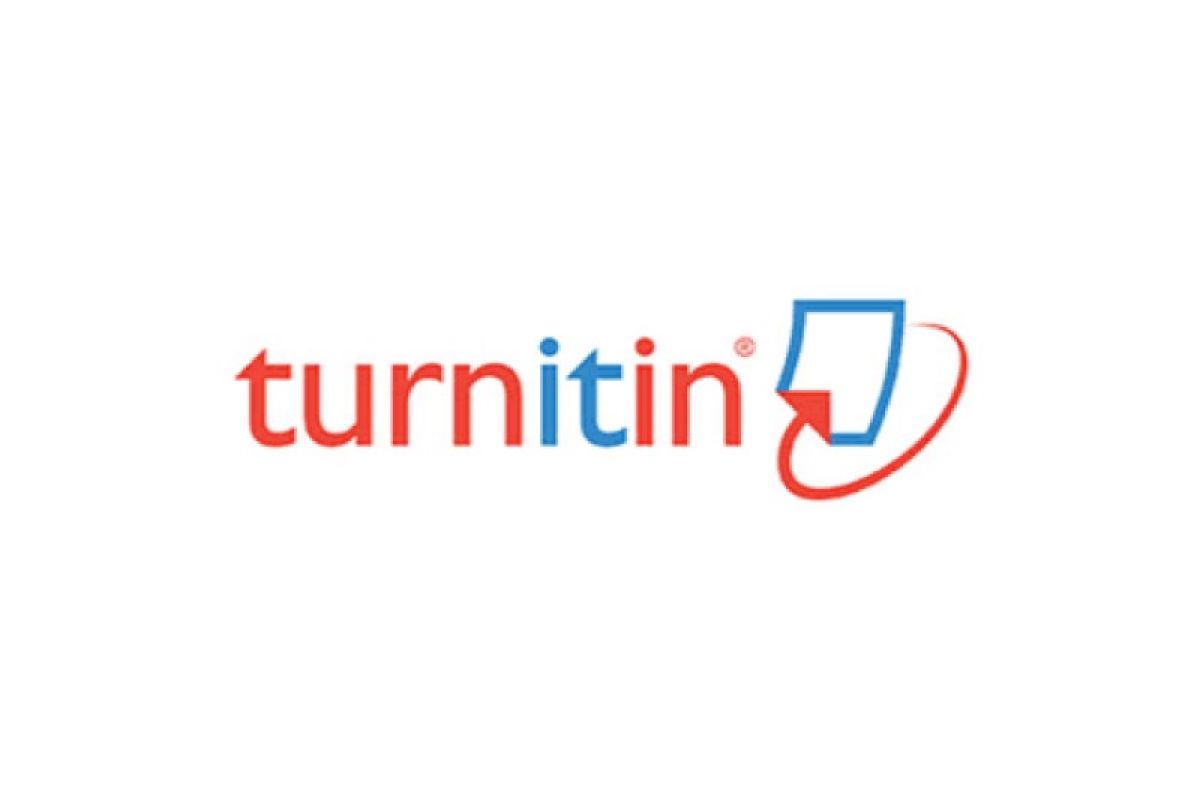MENGEKSPLORASI DAMPAK KEPEMIMPINAN AGILE DAN LOGISTIK BERBASIS AGEN TERHADAP EFISIENSI BIAYA PENGIRIMAN LAST-MILE: WAWASAN DARI J&T EXPRESS
DOI:
https://doi.org/10.47491/landjournal.v6i2.4226Keywords:
Agile Leadership, Agent-Based Logistics, Last-Mile Delivery, Logistics Efficiency, Operational FlexibilityAbstract
The logistics industry has experienced substantial transformation due to the rapid expansion of e-commerce and advancements in digital technology, necessitating enhanced efficiency in last-mile delivery (LMD) processes. In the context of increasingly intense global competition and intricate infrastructure challenges, J&T Express confronts the imperative of sustaining its competitive edge. To address this challenge, two approaches currently perceived as promising are Agile Leadership and Agent-Based Logistics, both of which can augment operational flexibility and distribution efficiency. However, the empirical exploration of the relationship between these two concepts within the framework of LMD remains limited. This study seeks to investigate the impact of Agile Leadership on LMD efficiency at J&T Express and to assess the extent to which Agent-Based Logistics contributes to improved distribution effectiveness. Employing a quantitative methodology, this research gathers data through surveys administered to managers and operational personnel at J&T Express, with data analysis conducted utilizing PLS-SEM techniques. The findings indicate that Agile Leadership significantly enhances LMD efficiency by fostering responsiveness and operational flexibility. Furthermore, Agent-Based Logistics has demonstrated efficacy in expediting deliveries and reducing distribution costs through the engagement of community participation. The synergy between these two approaches further fortifies J&T Express's competitiveness in navigating complex logistics challenges. This research provides both theoretical and practical implications, offering recommendations for logistics firms to adopt more adaptive and community-oriented strategies.
References
Abdul-Hamid, Z., Zhang, Y., Aishatu, A., Akosua, A., & Fathia, B. (2021). Crowd logistics’ impact on environmental sustainability in a developing economy: An analysis in Ghana. American Journal of Industrial and Business Management, 11(5), 416-436. https://doi.org/10.4236/ajibm.2021.115027
Abbasi, S. and Ruf, T. (2020). Reduction of the fluctuation rate in multi-project organizations through agile leadership. Management Studies, 8(2). https://doi.org/10.17265/2328-2185/2020.02.005
Ahmad, M., Abdulhamid, A., Wahab, S., Pervaiz, A., & Imtiaz, M. (2022). Direct and indirect influence of project managers’ contingent reward leadership and empowering leadership on project success. International Journal of Engineering Business Management, 14. https://doi.org/10.1177/18479790211073443
Akyüz, M., Muter, ?., Erdo?an, G., & Laporte, G. (2022). Minimum cost delivery of multi-item orders in e-commerce logistics. Computers & Operations Research, 138, 105613. https://doi.org/10.1016/j.cor.2021.105613
Bin, H., Zhao, F., Xie, G., Huang, L., Wang, H., Zhu, R., … & Jiang, L. (2020). Crowd-sourcing a way to sustainable urban logistics: What factors influence enterprises’ willingness to implement crowd logistics? IEEE Access, 8, 225064-225075. https://doi.org/10.1109/access.2020.3044921
Busse, R., & Weidner, G. (2020). A qualitative investigation on combined effects of distant leadership, organisational agility and digital collaboration on perceived employee engagement. Leadership & Organization Development Journal, 41(4), 535-550. https://doi.org/10.1108/lodj-05-2019-0224
Cebeci, M., Bok, M., & Tavasszy, L. (2023). The changing role and behaviour of consumers in last mile logistics services: a review. JSCMS, 4(3-4), 114-138. https://doi.org/10.59490/jscms.2023.7265
Chowdhury, M., Quaddus, M., & Agarwal, R. (2019). Supply chain resilience for performance: role of relational practices and network complexities. Supply Chain Management an International Journal, 24(5), 659-676. https://doi.org/10.1108/scm-09-2018-0332
Dey, P., Chowdhury, S., Abadie, A., Yaroson, E., & Sarkar, S. (2023). Artificial intelligence-driven supply chain resilience in vietnamese manufacturing small- and medium-sized enterprises. International Journal of Production Research, 62(15), 5417-5456. https://doi.org/10.1080/00207543.2023.2179859
Durugbo, C., Almahamid, S., Budalamah, L., Al-Jayyousi, O., & BendiMerad, B. (2021). Managing regional logistics in times of crisis: A COVID-19 case study. Journal of Humanitarian Logistics and Supply Chain Management, 12(1), 54-77. https://doi.org/10.1108/jhlscm-01-2021-0001
Faturrahman, M. and Nursyamsiah, S. (2024). The influence of supply chain integration, agility, and innovation on company performance. Asian Journal of Economics Business and Accounting, 24(5), 382-399. https://doi.org/10.9734/ajeba/2024/v24i51317
Gligor, D., Gligor, N., Holcomb, M., & Bozkurt, S. (2019). Distinguishing between the concepts of supply chain agility and resilience. The International Journal of Logistics Management, 30(2), 467-487. https://doi.org/10.1108/ijlm-10-2017-0259
Hair, J. F., Hult, G. T. M., Ringle, C. M., Sarstedt, M., Danks, N. P., & Ray, S. (2021). Partial Least Squares Structural Equation Modeling (PLS-SEM) Using R A Workbook. Springer, Cham. https://doi.org/https://doi.org/10.1007/978-3-030-80519-7_1
Hajiagha, S., Alaei, S., Sadraee, A., & Nazmi, P. (2023). A perspective of international performance improvement concentrating on innovation and digital resilience of smes: the case of an emerging economy. Journal of Enterprise Information Management, 37(5), 1709-1736. https://doi.org/10.1108/jeim-02-2023-0078
Han, H., Ma, F., & Liu, X. (2024). Transformational leadership and project success: The serial mediating roles of team flexibility and team agility. Frontiers in Built Environment, 9. https://doi.org/10.3389/fbuil.2023.1334413
He, Z. (2020). The challenges in sustainability of urban freight network design and distribution innovations: a systematic literature review. International Journal of Physical Distribution & Logistics Management, 50(6), 601-640. https://doi.org/10.1108/ijpdlm-05-2019-0154
Hofman, M., Grela, G., & Oronowicz, M. (2023). Impact of shared leadership quality on agile team productivity and project results. Project Management Journal, 54(3), 285-305. https://doi.org/10.1177/87569728221150436
Hsieh, C., Chen, S., & Huang, C. (2023). Investigating the role of supply chain environmental risk in shaping the nexus of supply chain agility, resilience, and performance. Sustainability, 15(20), 15003. https://doi.org/10.3390/su152015003
Kara, K., & Yalç?n, G. (2022). Digital logistics market performance of developing countries. Uluslararasi Akademik Birikim Dergisi. https://doi.org/10.53001/uluabd.2022.38
Karia, N. (2023). Determinants of an environmentally sustainable model for competitiveness. Sustainability, 15(2), 1444. https://doi.org/10.3390/su15021444
Kittichat, C. (2024). Exploration of emerging trends and paradigms in leadership and governance research and practice in Thailand. International Journal of Leadership and Governance, 4(1), 13-26. https://doi.org/10.47604/ijlg.2393
Leyerer, M., Sonneberg, M., Heumann, M., & Breitner, M. (2020). Shortening the last mile in urban areas: Optimizing a smart logistics concept for e-grocery operations. Smart Cities, 3(3), 585-603. https://doi.org/10.3390/smartcities3030031
Li, C. (2023). Research on crowdsourcing distribution model of community e-commerce logistics development. Academic Journal of Management and Social Sciences, 2(3), 143-148. https://doi.org/10.54097/ajmss.v2i3.8753
Li, Z., Li, Y., Lu, W., & Huang, J. (2020). Crowdsourcing logistics pricing optimization model based on DBSCAN clustering algorithm. IEEE Access, 1-1. https://doi.org/10.1109/access.2020.2995063
Li, C., Wong, C., Yang, C., Shang, K., & Lirn, T. (2019). Value of supply chain resilience: roles of culture, flexibility, and integration. International Journal of Physical Distribution & Logistics Management, 50(1), 80-100. https://doi.org/10.1108/ijpdlm-02-2019-0041
Macfarlane, S., Haigh, F., Woodland, L., Goodger, B., Larkin, M., Miller, E., … & Wood, L. (2024). Critical success factors for intersectoral collaboration: Homelessness and COVID-19 – case studies and learnings from an Australian city. International Journal of Integrated Care, 24(2). https://doi.org/10.5334/ijic.7653
Maharjan, R. and Kato, H. (2023). Logistics and supply chain resilience of japanese companies: perspectives from impacts of the covid-19 pandemic. Logistics, 7(2), 27. https://doi.org/10.3390/logistics7020027
Martín-Santamaría, R., López?Sánchez, A., Jalón, M., & Colmenar, J. (2021). An efficient algorithm for crowd logistics optimization. Mathematics, 9(5), 509. https://doi.org/10.3390/math9050509
Miko, N. and Abbas, U. (2023). Determinants of efficient last-mile delivery: evidence from health facilities and kaduna health supplies management agency. Journal of Humanitarian Logistics and Supply Chain Management, 14(1), 4-16. https://doi.org/10.1108/jhlscm-05-2022-0054
Mokhtar, A., Genovese, A., Brint, A., & Kumar, N. (2019). Improving reverse supply chain performance: the role of supply chain leadership and governance mechanisms. Journal of Cleaner Production, 216, 42-55. https://doi.org/10.1016/j.jclepro.2019.01.045
Moncef, B., & Dupuy, M. (2021). Last-mile logistics in the sharing economy: Sustainability paradoxes. International Journal of Physical Distribution & Logistics Management, 51(5), 508-527. https://doi.org/10.1108/ijpdlm-10-2019-0328
Motwani, J. and Katatria, A. (2024). Organization agility: a literature review and research agenda. International Journal of Productivity and Performance Management, 73(9), 2709-2754. https://doi.org/10.1108/ijppm-07-2023-0383
Muzanenhamo, A., & Mkansi, M. (2023). A human capital perspective on behavioral factors affecting customers’ acceptance of crowd logistics: A systematic literature review. Indonesian Journal of Innovation and Applied Sciences (IJIAs), 3(3), 210-217. https://doi.org/10.47540/ijias.v3i3.1044
Nguyen, T., Le, C., Nguyen, M., Nguyen, G., Lien, T., & Nguyen, O. (2024). The organisational impact of agility: A systematic literature review. Management Review Quarterly. https://doi.org/10.1007/s11301-024-00446-9
Nurhaeni, I., Nurdin, A., Wiratama, P., & Kurniawan, Y. (2022). Gendered-perspective agile leadership in the vuca era during the covid-19 pandemic. Jurnal Ilmu Sosial Dan Ilmu Politik, 26(2), 119. https://doi.org/10.22146/jsp.70490
Nweze, O. (2024). Supply chain resilience digitalization, and localization. European Journal of Logistics Purchasing and Supply Chain Management, 12(1), 20-32. https://doi.org/10.37745/ejlpscm.2013/vol12n12032
Oliveira, M., Valentina, L., Futami, A., Possamai, O., & Flesch, C. (2021). Project performance prediction model linking agility and flexibility demands to project type. Expert Systems, 38(4). https://doi.org/10.1111/exsy.12675
Park, K. (2021). Navigating the digital revolution and crisis times: humanitarian and innovation-inspired leadership through the pandemic. Journal of Strategy and Management, 14(3), 360-377. https://doi.org/10.1108/jsma-01-2021-0021
Permana, E. (2022). The effect of transformational leadership on business performance through business agility expedition services. Jurnal Manajemen Teknologi, 21(2), 205-218. https://doi.org/10.12695/jmt.2022.21.2.6
Porkodi, S. (2024). The effectiveness of agile leadership in practice: A comprehensive meta-analysis of empirical studies on organizational outcomes. Journal of Entrepreneurship Management and Innovation, 20(2), 117-138. https://doi.org/10.7341/20242026
Prabhu, H. and Srivastava, A. (2022). Ceo transformational leadership, supply chain agility and firm performance: a tism modeling among smes. Global Journal of Flexible Systems Management, 24(1), 51-65. https://doi.org/10.1007/s40171-022-00323-y
Prastyantoro, R., Purnomo, A., & Gunawan, A. (2024). Sustainable Supplier Selection Using AHP: A Green Purchasing Approach at PT Dapensi Trio Usaha. Dinasti International Journal of Management Science (DIJMS), 6(1), 1-9. https://doi.org/10.38035/dijms.v6i1
Purnomo, A., & Syafrianita. (2024). Towards sustainable polio vaccine distribution: Evaluating a green metrics framework in Indonesia's pharmaceutical industry. Decision Science Letters, 13(3), 741–750. https://doi.org/10.5267/j.dsl.2024.3.005
Purnomo, A., & Syafrianita. (2024). Supply Chain Performance Measurement: The Green Supply Chain Operation Reference (SCOR) Approach. Revista de Gestão Social e Ambiental, 18(6), 1-16. https://doi.org/10.24857/rgsa.v18n6-013
Ringle, C. M., Sarstedt, M., Danks, N. P., & Ray, S. (2021). Partial Least Squares Structural Equation Modeling (PLS-SEM) Using R A Workbook. Springer, Cham. https://doi.org/https://doi.org/10.1007/978-3-030-80519-7_1
Saglietto, L. (2021). Bibliometric analysis of sharing economy logistics and crowd logistics. International Journal of Crowd Science, 5(1), 31-54. https://doi.org/10.1108/ijcs-07-2020-0014
Shin, N., & Park, S. (2019). Evidence-based resilience management for supply chain sustainability: An interpretive structural modelling approach. Sustainability, 11(2), 484. https://doi.org/10.3390/su11020484
Sinaga, T., Hidayat, Y., Wangsaputra, R., & Bahagia, S. (2022). The development of a conceptual rural logistics system model to improve products distribution in indonesia. Journal of Industrial Engineering and Management, 15(4), 670. https://doi.org/10.3926/jiem.4011
Song, Y., Hu, B., & Xue, H. (2021). Evolution of employee opinion in a crowdsourcing logistics company: A catastrophe-embedded RA model. Simulation, 98(4), 347-360. https://doi.org/10.1177/00375497211061269
Suguna, M., Shah, B., Raj, S., & Suresh, M. (2021). A study on the influential factors of the last mile delivery projects during covid-19 era. Operations Management Research, 15(1-2), 399-412. https://doi.org/10.1007/s12063-021-00214-y
Sultan, M., Kramberger, T., Barakat, M., & Ali, A. (2023). Barriers to applying last-mile logistics in the Egyptian market: An extension of the technology acceptance model. Sustainability, 15(17), 12748. https://doi.org/10.3390/su151712748
Syafrianita, Purnomo, A., & Nasrudin, M. F. (2024). Investigasi Hubungan Antara Advanced Technology, Logistics Service Cost, Dan Logistics Performance di Shopee Express Bandung Raya. Land Journal, 6(1), 253-265. https://doi.org/10.47491/landjournal.v6i1.4038
Tao, Y., & Wang, W. (2022). Logistics network distribution optimization based on vehicle sharing. Sustainability, 14(4), 2159. https://doi.org/10.3390/su14042159
Thakkar, R. (2024). Resilience and responsiveness in the logistics industry during disruptive events: A case study on the impact of the coronavirus pandemic. Westcliff International Journal of Applied Research, 8(1), 81-94. https://doi.org/10.47670/wuwijar202481rt
Wu, Q., Zhu, J., & Yang, C. (2023). The effect of cross-organizational governance on supply chain resilience: a mediating and moderating model. Journal of Purchasing and Supply Management, 29(1), 100817. https://doi.org/10.1016/j.pursup.2023.100817
Ya, C., Masukujjaman, M., Sobhani, F., Hamayun, M., & Alam, S. (2023). Green logistics, green human capital, and circular economy: the mediating role of sustainable production. Sustainability, 15(2), 1045. https://doi.org/10.3390/su15021045
Yamin, B., Almuteri, S., Bogari, K., & Ashi, A. (2024). The influence of strategic human resource management and artificial intelligence in determining supply chain agility and supply chain resilience. Sustainability, 16(7), 2688. https://doi.org/10.3390/su16072688
Zainuddin, N., Deraman, N., Raman, D., & Ganesan, L. (2022). Efficiency Of Last mile delivery of logistics service providers (lsps) in malaysia: post-covid. Quantum Journal of Social Sciences and Humanities, 3(6), 88-104. https://doi.org/10.55197/qjssh.v3i6.197
Zhang, M., Xia, Y., Li, S., Wu, W., & Wang, S. (2019). Crowd logistics platform’s informative support to logistics performance: Scale development and empirical examination. Sustainability, 11(2), 451. https://doi.org/10.3390/su11020451
Zhu, X., Cai, L., Lai, P., Wang, X., & Ma, F. (2023). Evolution, challenges, and opportunities of transportation methods in the last-mile delivery process. Systems, 11(10), 509. https://doi.org/10.3390/systems11100509














